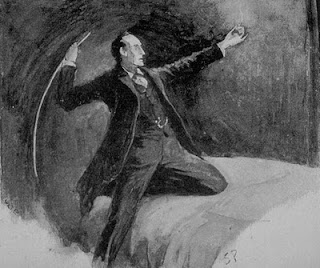There are systemic reasons why ebooks often have a higher rate of typos than conventional books. This can be traced to the workflow of typesetting and printing that catches typos without propagating fixes back to the writer's original manuscript. This file is in turn converted to ebook formats.
I think we should turn the workflow inside out. Let's produce ebooks first, put them in front of a lot of alpha-readers' eyeballs to find typos, then propagate bug reports back to the writer to fix before typesetting and printing.
The trouble with the last paragraph is that it can be tedious to mark a typo in an ebook and report it back. I think technology can make this a lot easier and it can streamline reporting. Amazon could tweak their Kindle software to do this fairly easily, and if they get the @author thing working, it might be turned to this purpose. However, since Jeff Bezos doesn't take orders from me, I think we should modify an open source reader program--since we have the source. Pick one that runs on any Android device--cell phone, rooted Nook Color, or tablet. Maybe a Kindle Fire if Amazon doesn't get in the way.
To this application a programmer could add code to mark a word or words, where it appears in the text, what the problem is, and who the reporter is, pack it up in a well-formatted message, then transmit the message via the web to the writer. Bonus points for macro commands for the writer's word-processing program that will position the text at the location of the error as indicated by the report. And the reviewer's notes inserted as a comment.

The publisher could circulate advanced review copies to alpha/beta readers who'd use this system as indicated to improve the work's accuracy.
Since I'm a programmer all this seems very feasible to me. But I've learned that if I'm the only one interested in making something happen, progress goes very slowly. Does anybody else think this could be useful?
Leave a comment if you think so. If enough votes are in favor, I'll see about next steps.



